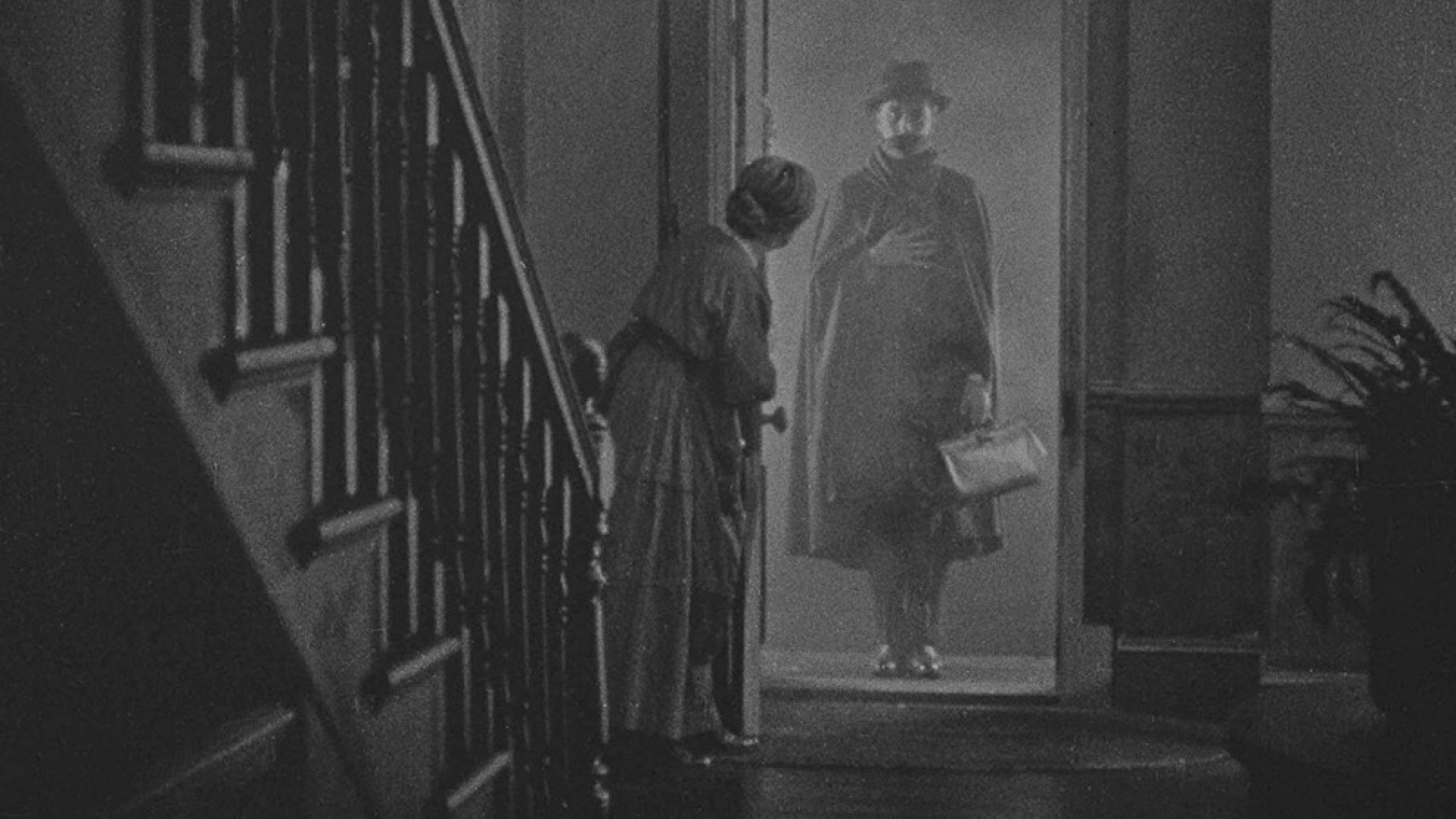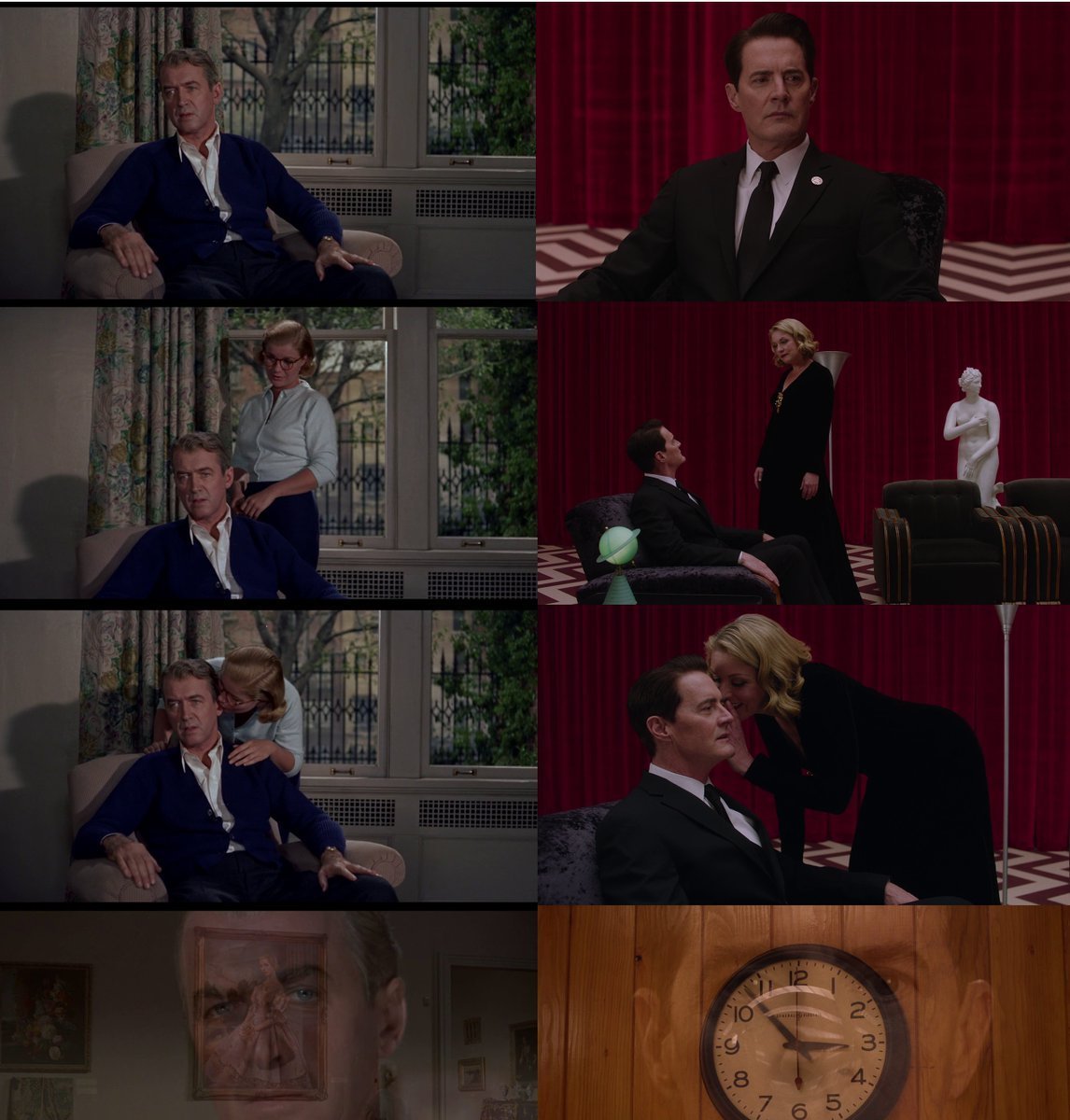Some Opening Thoughts on Alfred Hitchcock, Our Director of 2023 by Craig Hammill
In 1959, Alfred Hitchcock wrote the following in an article:
“…over the years I’ve been forced to the conclusion that a blind future is one of God’s most strictly enforced rules and that scientific effort to see into the future is also doomed to failure. There are two main reasons.
The first reason is simple. In life, if we knew the outcome of everything, most of the zest would go out of living. What fun would it be to go to a baseball game if you knew which team was going to win? Why go fishing if you knew that you would (or wouldn’t) catch fish?
The unknown has its appeal precisely because it is mysterious. Take the concept of heaven for instance—wouldn’t we tend to lose some of our interest in it if we knew exactly what it was like?
So when God keeps the future hidden, He is saying that things would be very dull without suspense.
But I think He has a deeper reason than that when he hides the future. I think He is also being merciful. Because, if life would be dull knowing about tomorrow, it would also be terrible.
Do you remember the story of the king who befriended a wizard and was granted two wishes? His first wish was to see the future completely.
But when the king saw the pain, the misery, the death, along with the beautiful things ahead, he immediately asked for his second wish: that the future be hidden again.
“I did not know that I already had the greatest gift of all,” he explained. “The gift of a blind future.”
And so, I’ve come to believe that a hidden future is one of God’s most merciful and exciting gifts. Without it there would be nothing to wait for, worse, nothing to hope for. In any case, whether we like it or not, we have to live with it.”
Hitchcock wrote this as part of a bigger article on his first experience with the unexpected ups and downs of a film director. When he made The Lodger in 1927, he was sure he had made one of the most exciting and innovative movies of the silent era (and he had). But the studio thought the movie unreleasable and shelved it. Hitchcock had to wait months thinking himself a failure until a change of regime and chance saw fit to release the movie.
The Lodger was an instant sensation with the audience (as the young director suspected it would be) and started Alfred Hitchcock on his path to becoming one of cinema’s best and most well known directors.
What struck me doubly about this quote is Hitchcock’s surprisingly subtle, layered, and profound take on the nature of suspense and the unknown.
The director of Psycho, Rear Window, Vertigo, The 39 Steps, The Birds, Strangers on a Train, Shadow of a Doubt, North by Northwest, and The Lady Vanishes was well known for his genius at constructing a movie and entertaining an audience. He was equally well known for his commercial genius at marketing himself so a movie could get made on his name alone.
But if Hitch were merely a genius technician gifted in his understanding of the tools of cinema, we might remember him more as a brilliant craftsman and self promoter.
@victorsaintmac on Twitter
Over time, however, Hitchcock and Hitchcock movies have taken their place alongside the works of more readily recognized art house geniuses as Ingmar Bergman and Federico Fellini or acknowledged American auteurs like John Ford, John Huston, and Stanley Kubrick, as some of the greatest cinema, cinema has ever been able to produce.
Heck, David Lynch has made two movies explicitly inspired by Hitchcock movies-Blue Velvet (inspired by Rear Window) and Lost Highway (inspired by Vertigo).
But all this is beside the point. Hitchcock, maybe more than any other director in the American system beside John Ford and Steven Spielberg, found a way to make movies that were singularly about his obsessions while delivering consummate works of entertainment.
Hitchcock also famously observed that it helps to let “the audience play God”. By which he meant, it helps to let the audience know more than the characters in the movie know, and thus gain a kind of four dimensional perspective on the potential outcomes of scenes. This key ingredient powered Hitchcock’s cinema.
Rather than surprise an audience with a bomb suddenly exploding (in an example he often used), it is far better to show the bomb being planted under a table with a timer that will make it explode in a minute, then have characters we love come into the room totally unaware they are about to be blown to smithereens.
Hitchcock also found a way to experiment with the cinematic form right under the watchful gazes of American studio heads and producers who cared deeply (and understandably) about the bottom line and getting butts in seats.
Who else has ever been able to sneak in a crazy surreal dream sequence designed by surrealist painter Salvador Dali into a David Selznick produced mega movie (Spellbound)?
Who else interrupts an already intense and ineffable mystery with an animated avante garde short movie featuring the disembodied head of Jimmy Stewart (Vertigo)?
Who else regularly featured German expressionist design and Russian montage editing in movies starring some of Hollywood’s biggest stars and even, at the height of daring, took a cubist approach to a murder in a shower with seventy eight set ups and fifty two edits in less than forty six seconds (Psycho)? And this was towards the end of his long career!
Hitchcock never stopped experimenting. Never stopped striving. Never stopped driving himself to topping himself. Never ran out of ideas (until the very end).
Hitch was also one of the first truly polyglot moviemakers. He often had a hand in writing his scripts (with his wife and fellow editor Alma Reville), creating the vision for the production design (from his early days designing sets and titles), placing the camera (through his constant use of storyboards), and editing the movies.
Of course there appears to have been a deeply troubled and dark side to Hitchcock as well. The stories of his conflicted self-loathing, drinking, overeating, micro-managing of his female stars, struggle with his own self-image, all powered his suspense stories of characters alternately overcoming and succumbing to psychological demons and external devils. A cycle Hitch himself seemed caught up in his entire life.
What we should acknowledge though, and give thanks for, is that Alfred Hitchcock showed generations of moviemakers that intensely personal cinema, innovative filmic experimentation, and wildly gripping stories and entertainment need not be exclusive.
Hitchcock may be movie’s only true art house/mainstream auteur. Kubrick, Kurosawa, John Ford, Jean Renoir, and Steven Spielberg all belong to that rarified group as well. But Hitch still strikes one as the master of that game forty plus years on.
Hence the name of our series: The Master.
So let’s take a seat, dip our hand in the tub of popcorn, settle in as the lights go down, and learn from the master at work.
Craig Hammill is the founder.programmer of Secret Movie Club.




